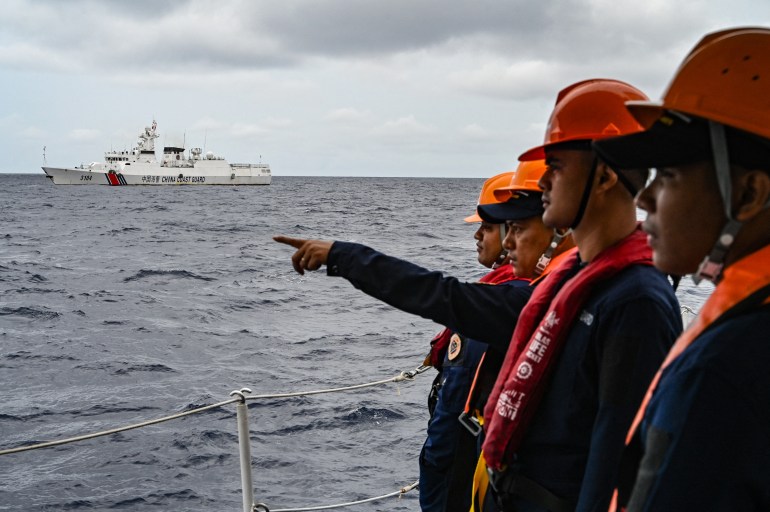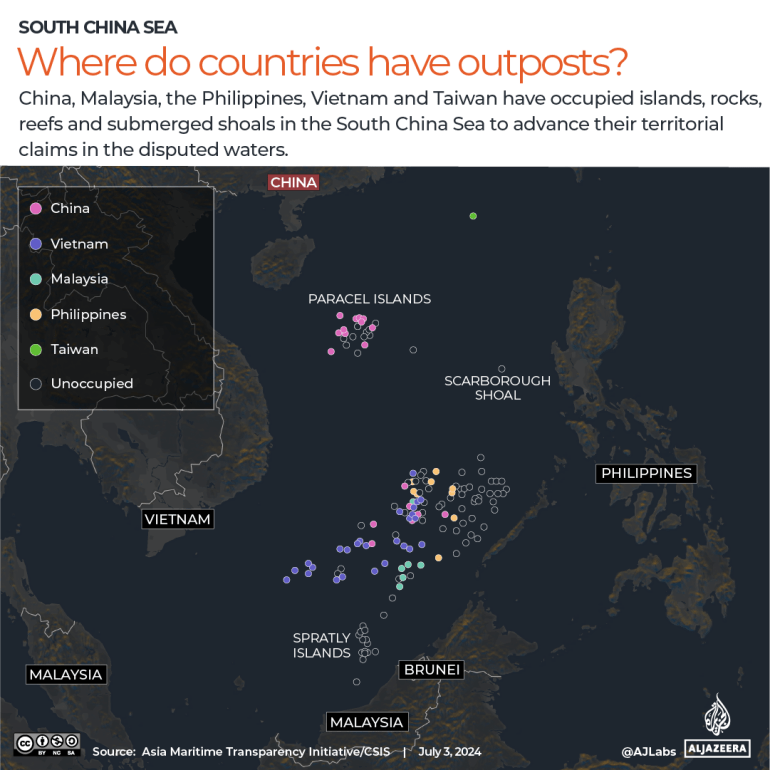Top US diplomat says Beijing has ‘injured people’ and ‘harmed vessels’ of rival nations in the disputed waters.
United States Secretary of State Antony Blinken has told Southeast Asian leaders that Washington is “concerned” about Chinese expansionism in the South China Sea, pledging to uphold freedom of navigation in the waterways.
Blinken attended the annual summit of the Association of Southeast Asian Nations (ASEAN) in Vientiane, Laos, on Friday, condemning China’s “increasingly dangerous and unlawful actions” in the vital sea trade route following a series of violent confrontations with the bloc’s members that have threatened to spiral into a full-scale conflict.
China, which claims almost the entire sea, has overlapping claims with ASEAN members Vietnam, the Philippines, Malaysia and Brunei, as well as Taiwan. About a third of global trade transits through the waters, which are also rich in fishing stocks, gas and oil.
In recent months, Beijing has deployed military and coastguard vessels in a bid to eject the Philippines from a trio of strategically important reefs and islands in the South China Sea.

It has also ratcheted up pressure over a disputed island group controlled by Japan in the East China Sea, rattling Tokyo and its allies.
And it has sent patrol vessels to areas that Indonesia and Malaysia claim as exclusive economic zones.
Blinken said that China’s actions “injured people, harmed vessels from ASEAN nations and contradict commitments to peaceful resolution of disputes”, pledging that the US would “support freedom of navigation, and freedom of overflight in the Indo Pacific”.
He also said the US hoped to work with ASEAN leaders to “protect stability across the Taiwan Strait”, a source of constant tension with China, which claims the self-ruled island of Taiwan as its own territory.
Philippine President Ferdinand Marcos Jr complained to summit leaders on Thursday about “harassment and intimidation” from China, calling for more urgency in ASEAN-China negotiations on a code of conduct to govern the South China Sea.
Malaysia, which takes over the rotating chair of the 10-member ASEAN next year, is expected to push to accelerate talks on the code of conduct, which officials have agreed to complete by 2026, though discussions have been hampered by disagreements over whether the pact should be binding.

Singapore’s Prime Minister Lawrence Wong earlier this week warned of “real risks of an accident spiralling into conflict” if the sea dispute is not addressed.
China has refused to recognise a 2016 international arbitration ruling by a United Nations-affiliated court in The Hague that invalidated its expansive claims, and has built up and militarised islands it controls.
On Thursday, Chinese Premier Li Qiang accused “external forces” of introducing “bloc confrontation and geopolitical conflicts into Asia”, without mentioning specific countries.
The US has no claims in the South China Sea, but has deployed navy ships and fighter jets to patrol the waters in a challenge to China’s claims.